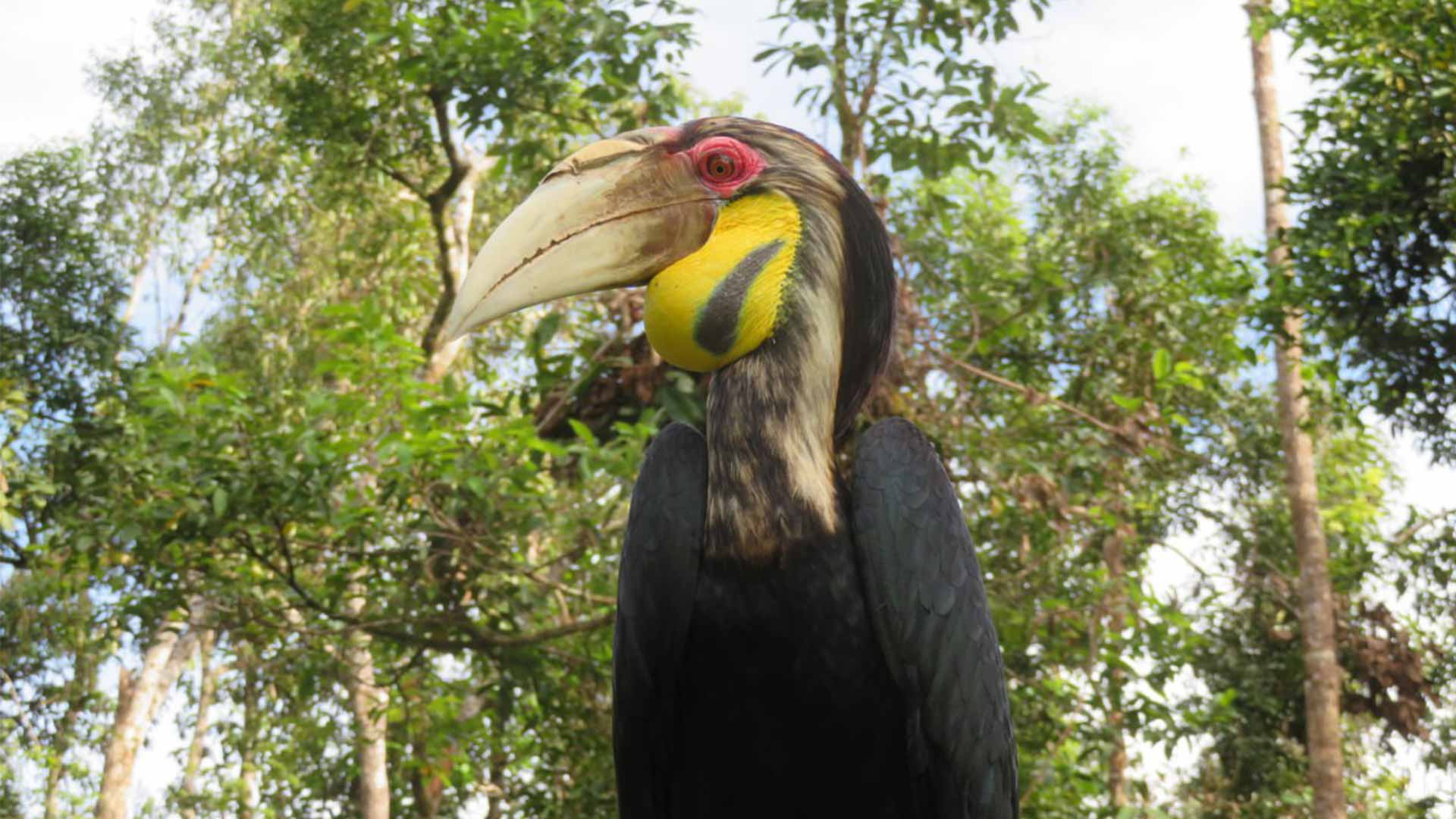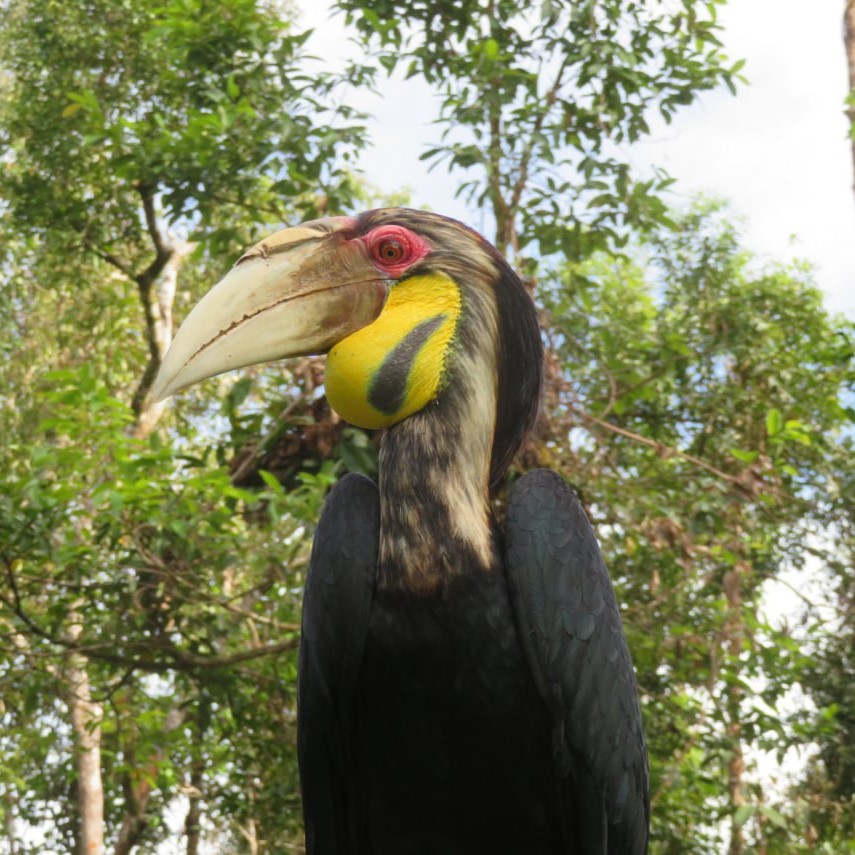Wreathed hornbills get their name from the long-curved bill with ridges or ‘wreaths’ on the casque of the upper mandible. Growing up to 117cm and weighing up to 3.6 kilograms, wreathed hornbills are one of the most social hornbill species often seen flying in larger flocks than other hornbill species.
Wreathed hornbills get their name from the long-curved bill with ridges or ‘wreaths’ on the casque of the upper mandible. Growing up to 117cm and weighing up to 3.6 kilograms, wreathed hornbills are one of the most social hornbill species often seen flying in larger flocks than other hornbill species.

Meet Kiri
Kiri, meaning mountain in Khmer, was rescued in 2020 as a young chick. A villager in nearby Chi Phat found two chicks and donated them to our Wildlife Release Station in hopes they would be released back to the wild once fully grown. Initially the team suspected they had received one male and one female, however as it turned out, once their adult plumage grew in, both were female.

Meet Kiri
Kiri, meaning mountain in Khmer, was rescued in 2020 as a young chick. A villager in nearby Chi Phat found two chicks and donated them to our Wildlife Release Station in hopes they would be released back to the wild once fully grown. Initially the team suspected they had received one male and one female, however as it turned out, once their adult plumage grew in, both were female.
Every sponsorship will receive an online printable packet.
This e-packet saves us money on printing and postage so everya dollar you donate goes directly to the animals.
*If you’d like to put the sponsorship in another person’s name, please put their details in the “Additional comments” section below.
